Since taking over the Iraqi city of Mosul in June, fighters from the Islamic State of Iraq and Syria systematically have expelled the city’s Christian population—which had endured in the city for more than 1,600 years.
ISIS gave the Christians just days to convert to Islam, pay a special tax or leave. Most fled. Militants robbed many of them on their way out.
Hundreds of families sought refuge in the nearby Christian enclave of Hamdaniya. Kurdish Zeravani troops defend the town, making it a relative safe haven.
Yohanna Petros Mouche is the Syriac Catholic archbishop of Mosul. He resides in Hamdaniyah, where he has an office at the Seramir Christian Academy.
There currently are no students at the academy. Most left fearing ISIS. Today the academy houses refugees from Mosul. Mouche estimates that around 750 families have fled Mosul for Hamdaniyah.
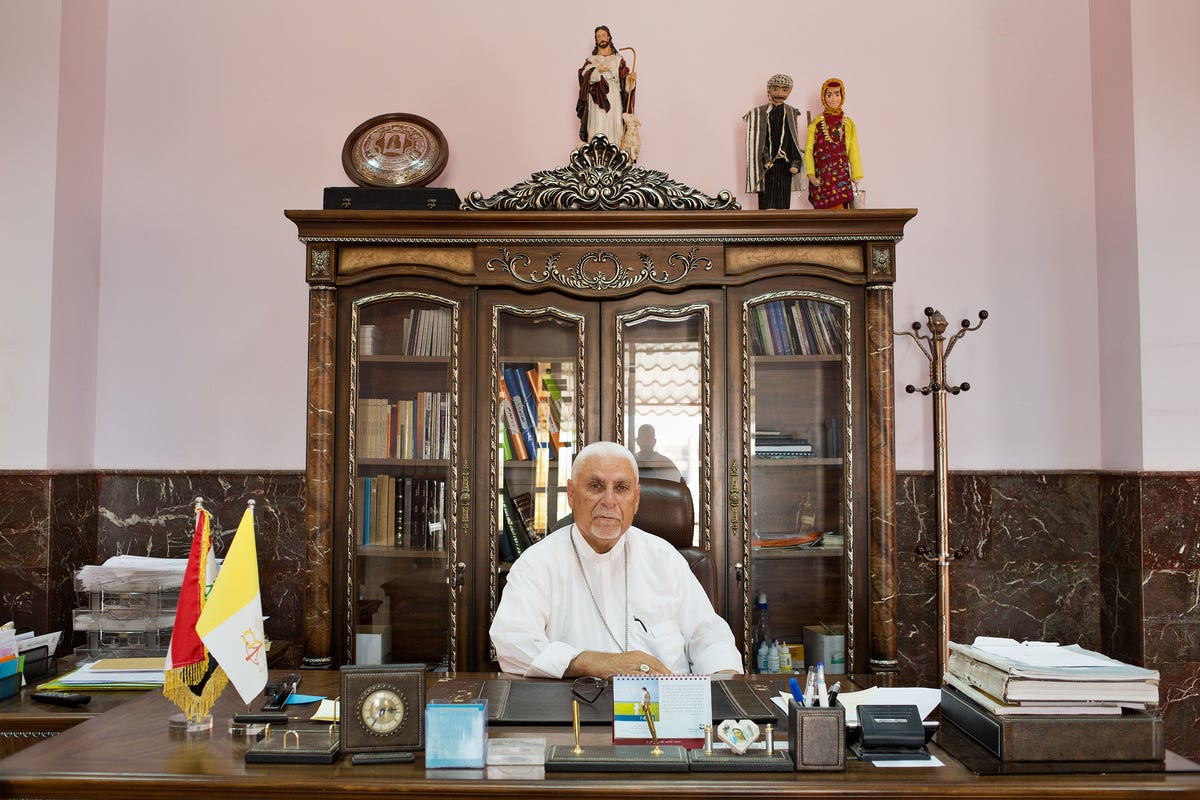
“We think that there are no Christians left in Mosul,” Mouche says. “When ISIS act and think the way they do, I do not think we can stay in Iraq.” By that, he means the Arab regions outside Kurdistan.
Kurdish forces halted ISIS’ advance in mid-June. First Zeravani troops drove back militants’ artillery that had been shelling the Christian town. Then the Kurds established a defensive line between Hamdaniya and Mosul.
Mouche says he’s indifferent to Kurdish independence. Nor is he interested in the feud between the Kurds and Iraq’s central government. He says all he cares about is his people’s safety.
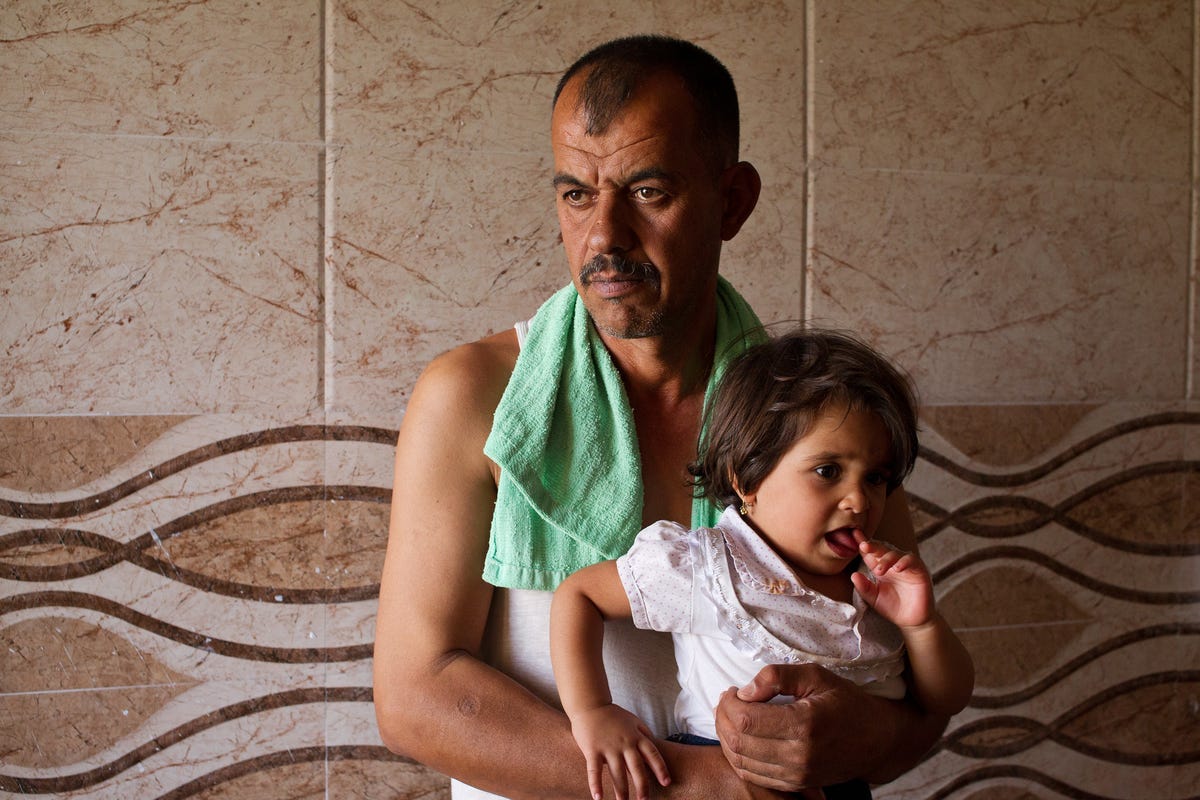 Ra’id Kamal with his five-year-old daughter Rania. Matt Cetti-Roberts photo
Ra’id Kamal with his five-year-old daughter Rania. Matt Cetti-Roberts photo
Sahira and Ra’id Kamal and their children are among the new arrivals in Hamdaniya. They and their extended family—17 people in all—have taken up residence in an unfinished house.
“My father lived in Mosul for 70 years,” Sahira explains. “We live there, we were married there, everything.”
ISIS invaded in June and the Iraqi army collapsed. But the Kamals say they weren’t afraid. At first, they thought that if they followed the rules, they would be okay.
But in recent weeks that changed. ISIS told the Kamals they had to pay because they are nasrani—a slur for Iraqi Christians.
Sahira says ISIS marked Christian homes with the Arabic letter for N and then threw out the occupants.
When the Kamals tried to leave Mosul, militants stopped them at a checkpoint. One of the fighters put a knife to the neck of Sahira and Ra’id’s 19-year-old son and told them to hand over everything they had.
“My son was afraid, he told them he had a key, he had money and he gave them everything to avoid being killed,” Sahira explains.
The militants took their watches, their phones and demanded a tax to let them keep their car. They even snatched family pictures.
“They sent me to the women ISIS fighters to be searched. I asked them why are you searching me and the fighters said that the archbishop would not agree to pay money to ISIS. They said your leader [the archbishop] is a dog.”
Sahira says that women ISIS fighters even did a search of her intimate areas.
“After that, we don’t have anything—just the clothes we wear,” Sahira says.
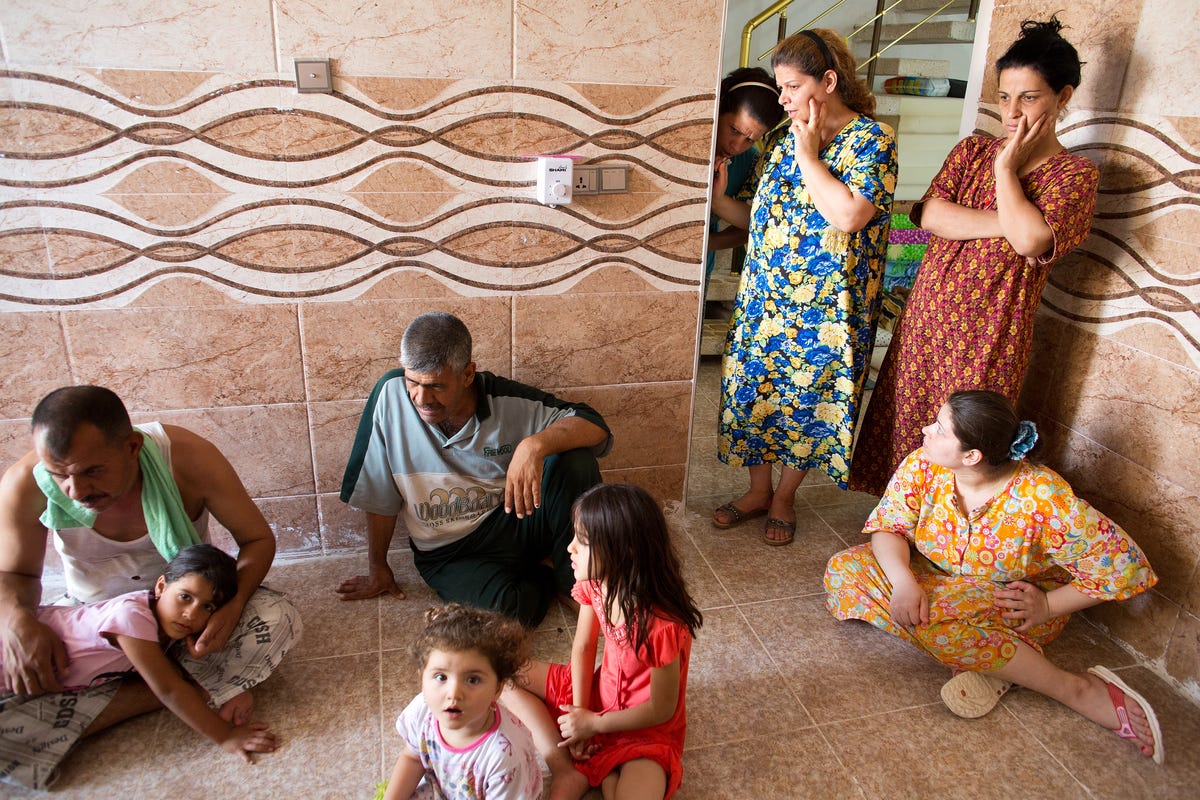 Matt Cetti-Roberts photo
Matt Cetti-Roberts photo
When they reached Hamdaniya, they met with Mouche and asked for help finding a place to live.
“He talked with a local businessman about some unfinished houses and got us a place to live in,” Sahira says.
The Kamals say they feel safe in Hamdaniyah. But they struggle to support themselves. Ra’id worked as a driver in Mosul. But in Hamdaniya he’s lucky to get odd jobs and day labor.
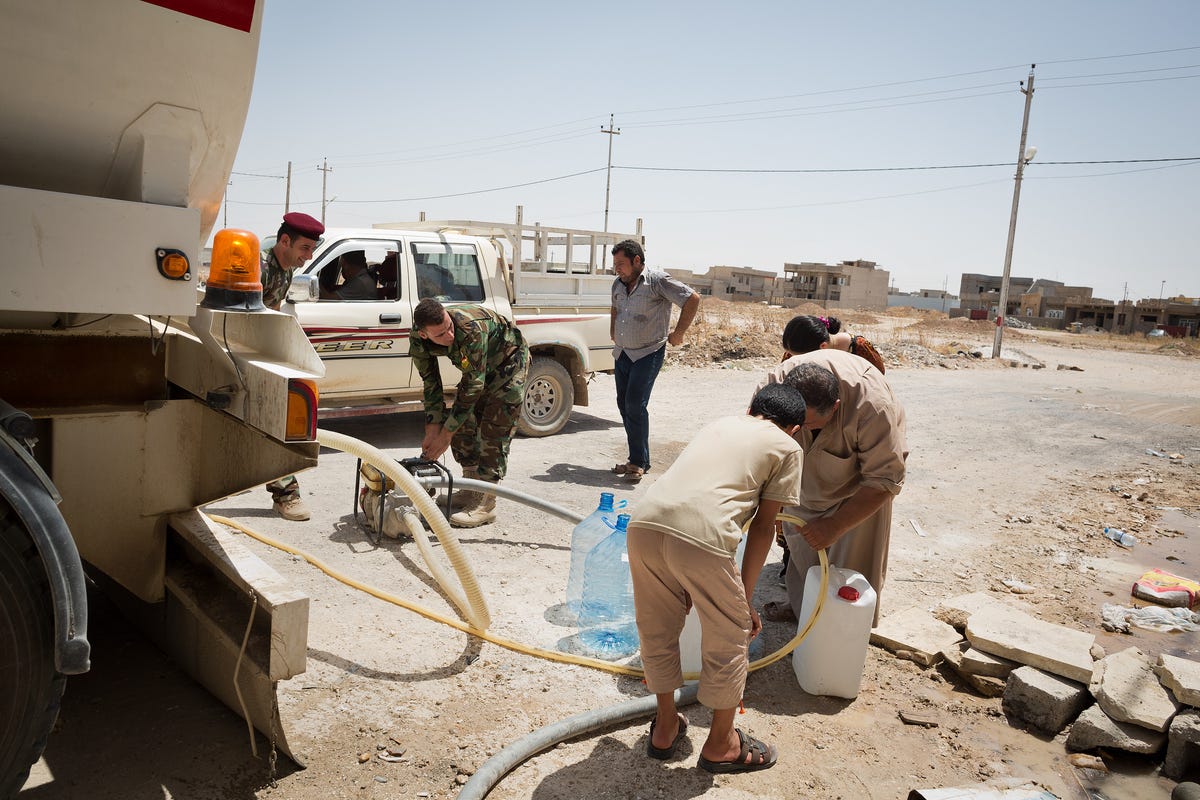 Matt Cetti-Roberts photo
Matt Cetti-Roberts photo
Ra’id mentions that they’ve run out of water. Not long after, Zeravani troops arrive driving a tanker truck marked “petrol.” The Zeravani have been using the fuel tankers to haul water for the refugees. The soldiers attached a pump and filled storage tanks on roofs and outside houses.
 Matt Cetti-Roberts photo
Matt Cetti-Roberts photo
Some of the Zeravani apparently are from the Hamdaniya area. The soldiers chat with the families in Arabic as they work.
 Sahira and Ra’id Kamal and their kids. Matt Cetti-Roberts photos
Sahira and Ra’id Kamal and their kids. Matt Cetti-Roberts photos
The Kamals are ecstatic. Ra’id and his kids splash themselves with cold water from one of the tanks. Sahira brushes her nine-year-old daughter Dilar’s wet hair.
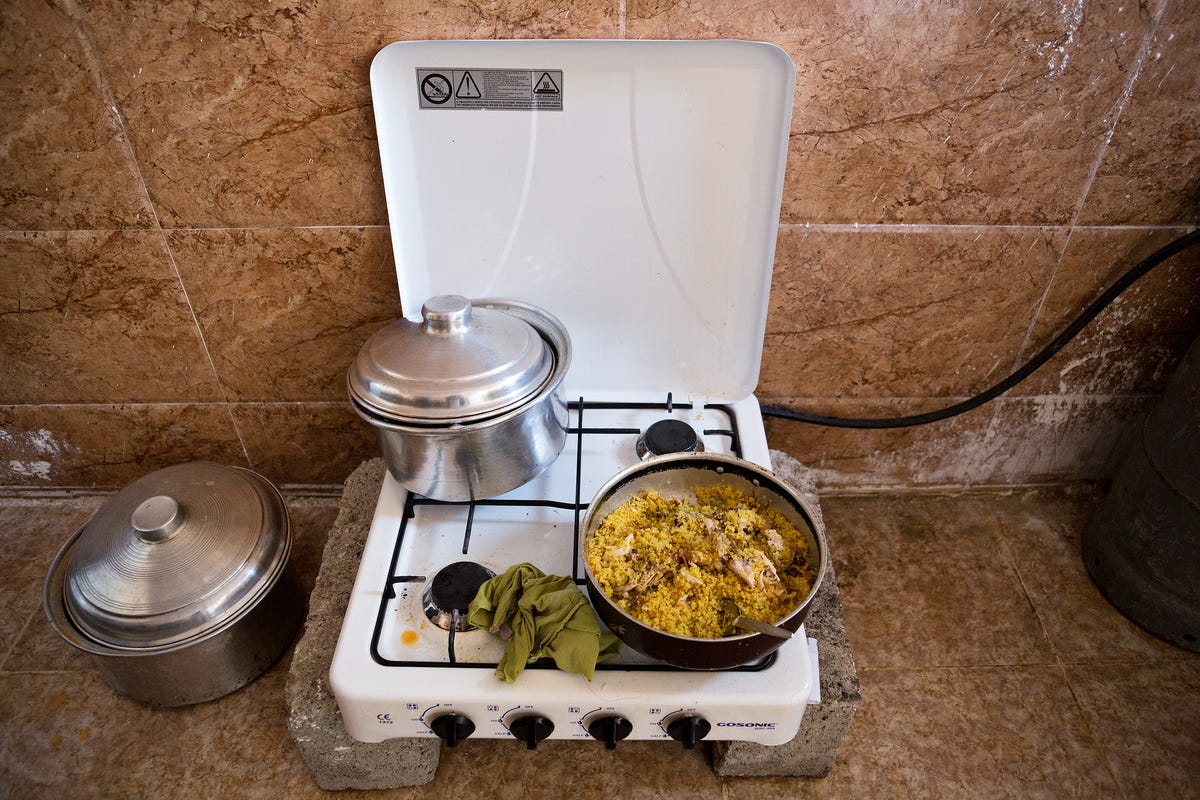 Matt Cetti-Roberts photo
Matt Cetti-Roberts photo
For lunch they cook a basic Iraqi meal of some rice, beans and potatoes in a tomato sauce. The stove—a small portable four-ring hob on breeze blocks— seems woefully inadequate to serve 17 people. The families eat together on the hard kitchen floor.
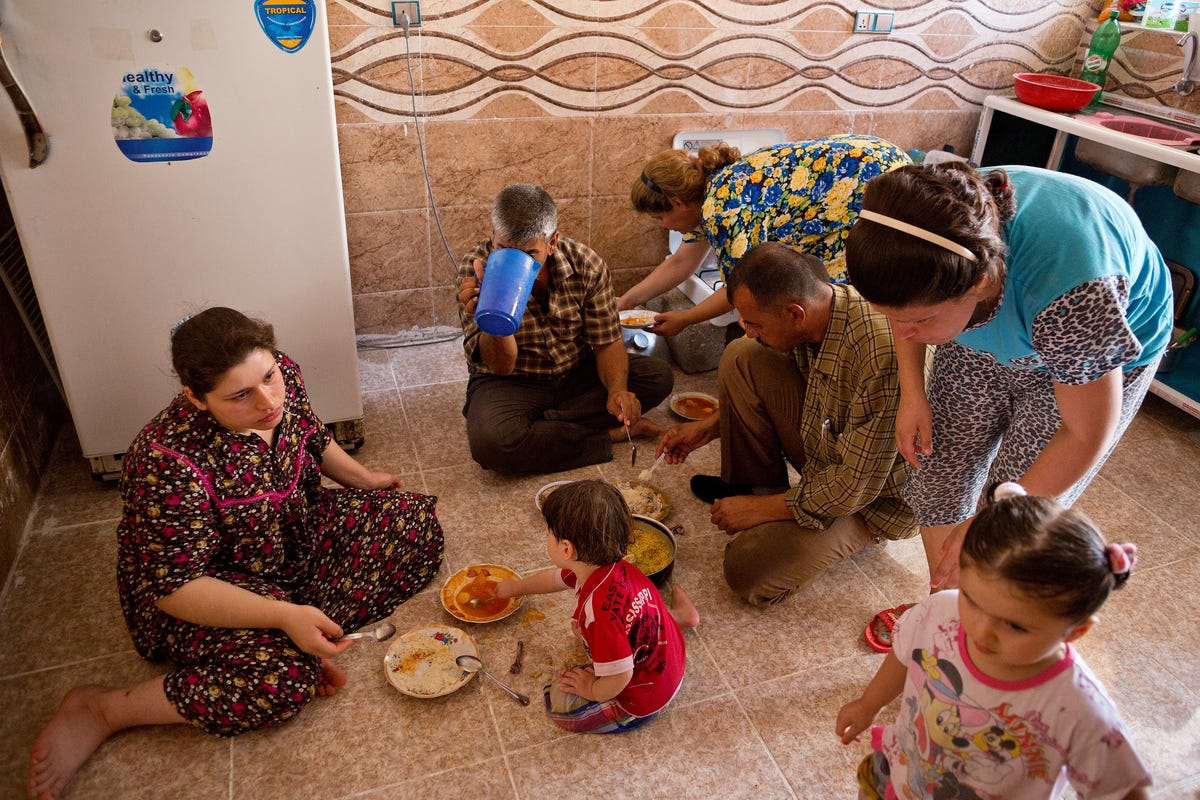 Matt Cetti-Roberts photo
Matt Cetti-Roberts photo
The Kamals are lucky. Their new home is mostly complete, with windows and tile. They have power, a refrigerator, an air-conditioner. And water.
But the summer days are hot and long. With 17 people in one house, it’s easy to get restless. The only book in the house is an illustrated Bible Mouche gave them. There’s little to do. They struggle to find work.
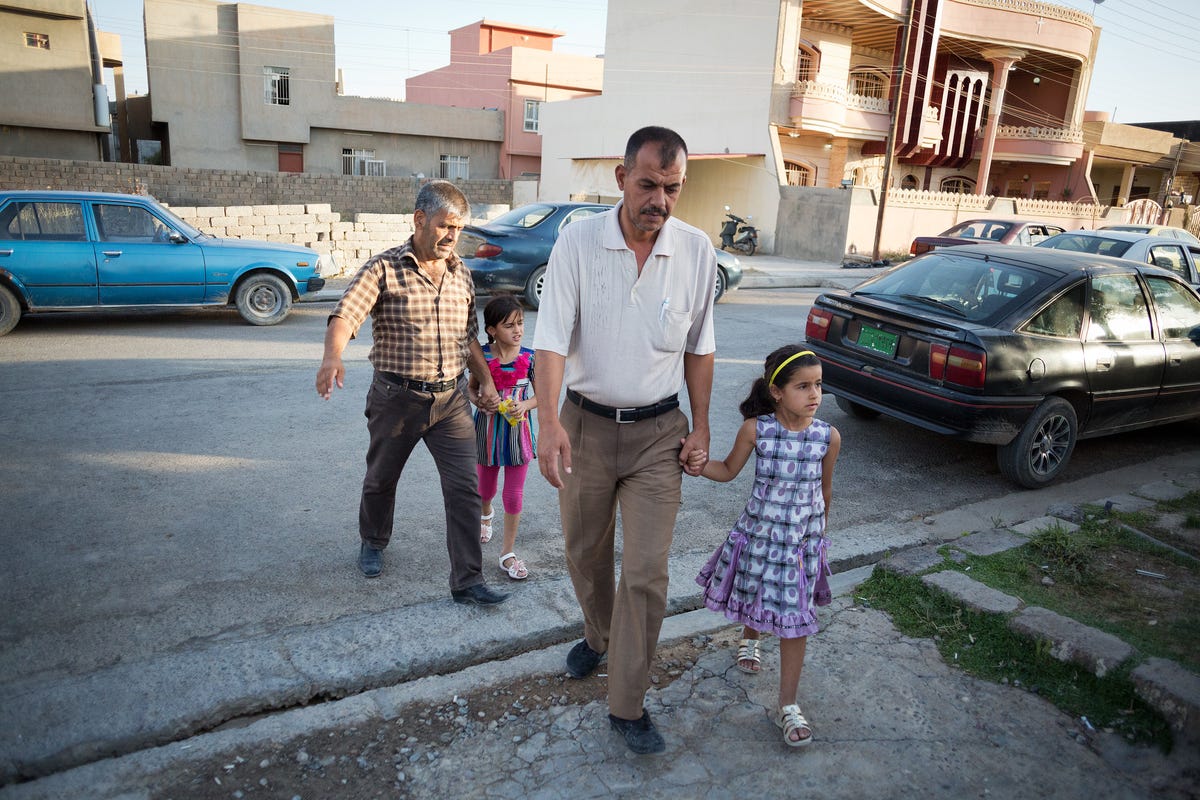 Going to church. Matt Cetti-Roberts photo
Going to church. Matt Cetti-Roberts photo
The next day, Ra’id takes their children to church.
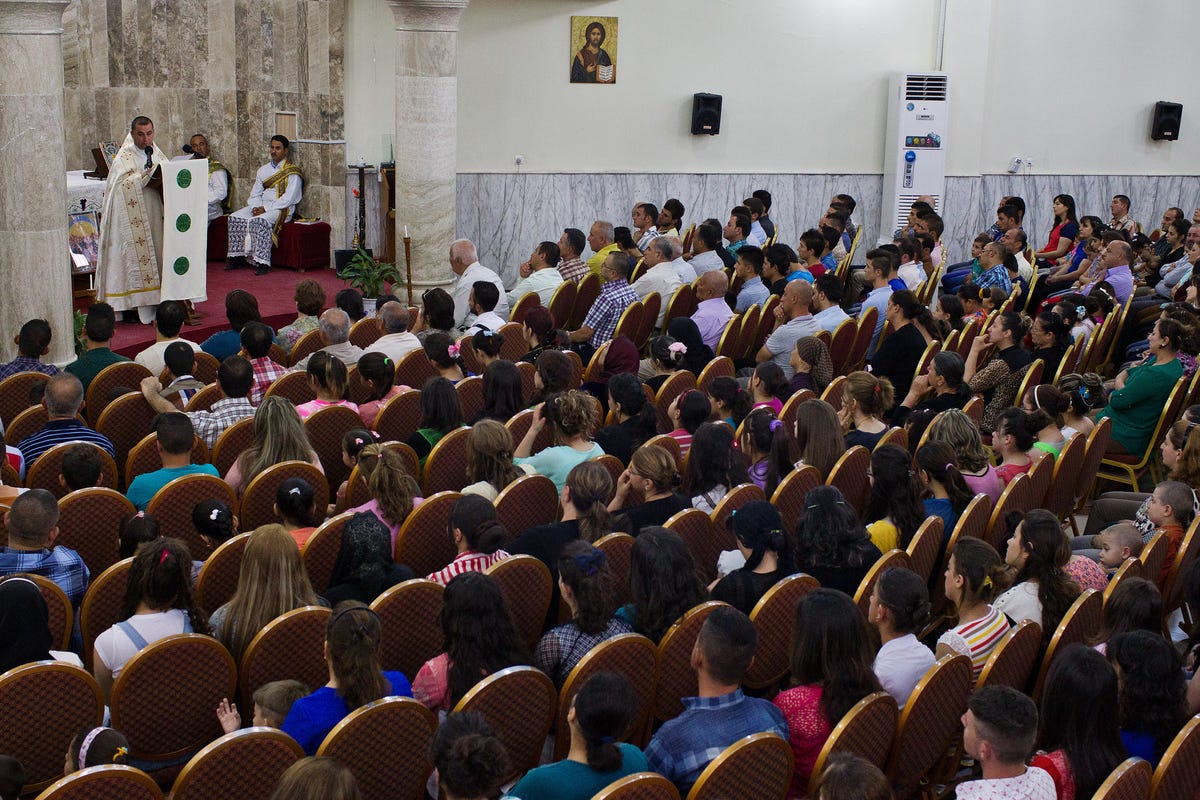 Matt Cetti-Roberts photo
Matt Cetti-Roberts photo
The chapel is packed with town residents and refugees.
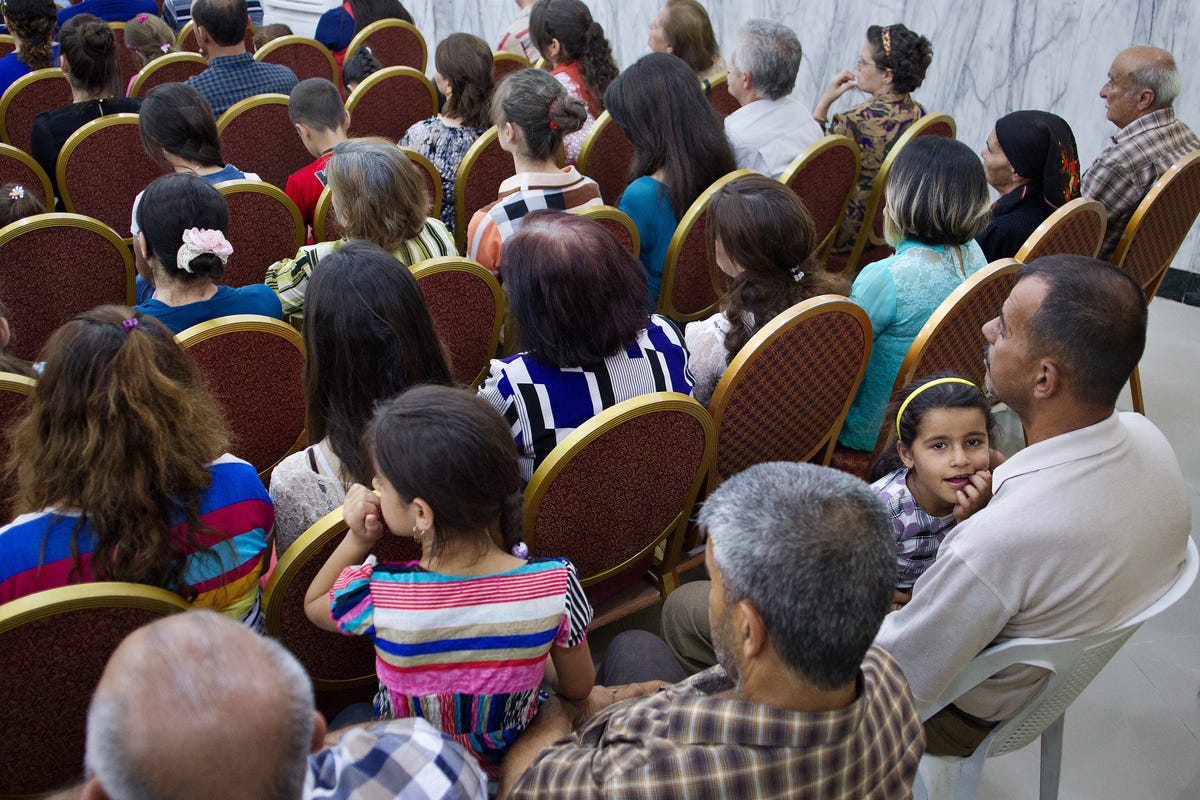 Matt Cetti-Roberts photo
Matt Cetti-Roberts photo
The Kamals sit in the back row. The congregation silently watches as the priest delivers mass.
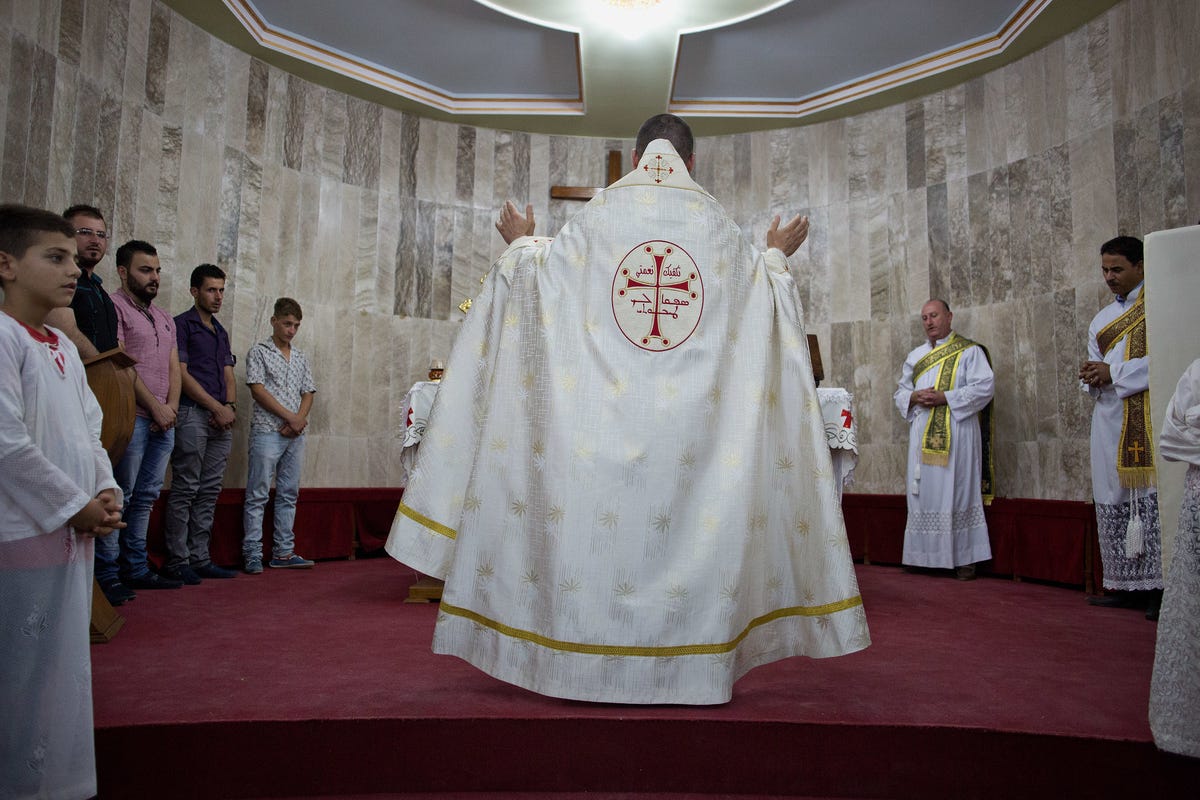 Matt Cetti-Roberts photo
Matt Cetti-Roberts photo
You can follow photographer Matt Cetti-Roberts on Twitter at @unknownsn
No comments:
Post a Comment